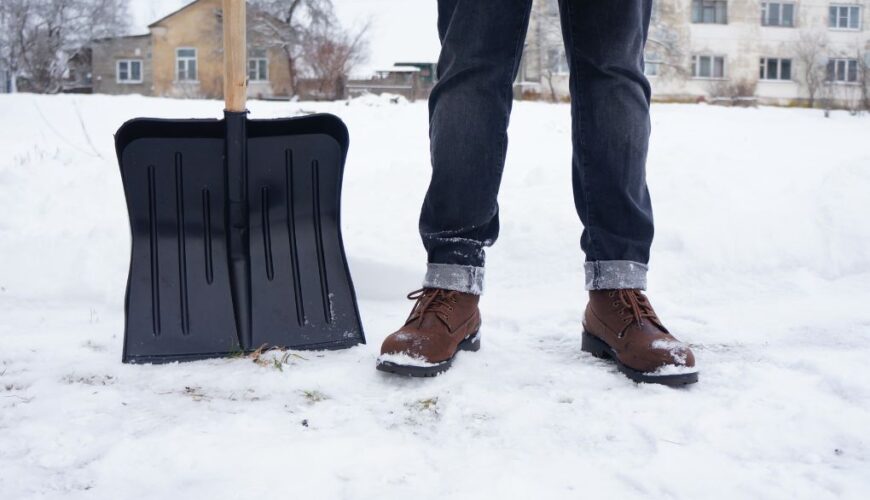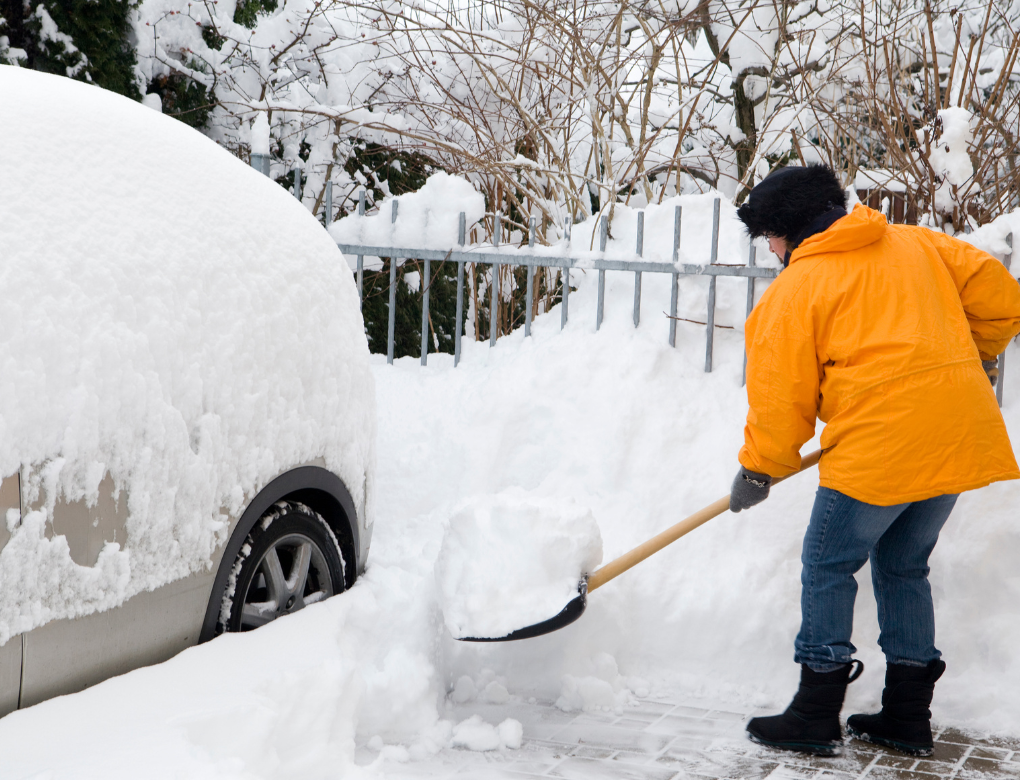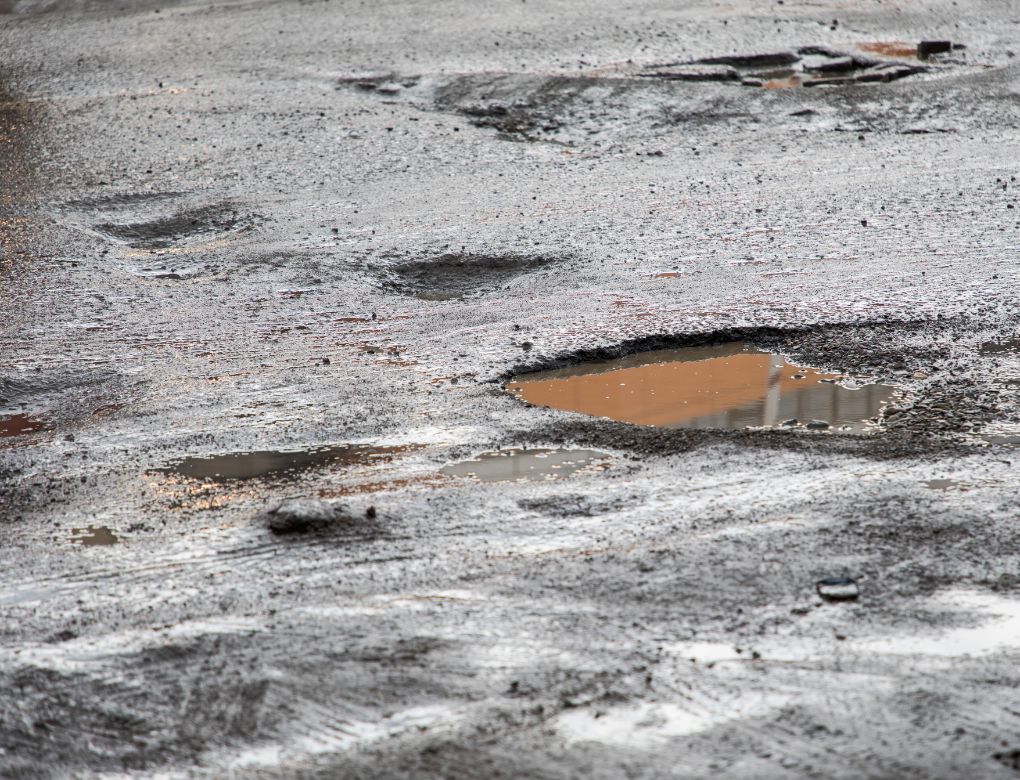The winter challenge: How to safeguard your driveway with epoxy
Winter can be tough on driveways. From harsh weather conditions to the salt and chemicals used to melt the snow and ice, traditional concrete driveways can take a beating. By the time spring finally arrives, there might be cracks, potholes, and other damage to the surface.
It’s important, though, to make sure that you prioritize driveway maintenance. Not just for the curb appeal but safety as well.
The best way to protect your driveway from the winter elements is to prevent it.
Epoxy coatings are becoming increasingly popular with homeowners as a way to seal concrete driveways and protect them from snow, rain, and chemicals like deicers.
Why is winter hard on driveways
Driving around the Cincinnati area, it’s hard not to feel the effect that winter weather can have on surfaces. Literally, feel them as you inevitably hit a pothole on the way home from work — and that’s after dodging at least a few others on your commute.
In fact, the city had more than 1,500 calls about potholes between January and April in 2023.
And after a season of snow, ice, rain, and temperature fluctuation, your driveway looks more like a city street than an inviting entrance to your home.
But just what does that winter weather do to your driveway?
Cracking
As a homeowner, one of the most common driveway problems is cracking. Water can seep into small cracks in the driveway, and when it freezes, it expands, causing the cracks to widen. Over time, this can lead to larger cracks and even potholes. It can even affect how water drains from your property and could cause flooding or or erosion problems.
Potholes
Potholes can form when water gets into cracks in the driveway and freezes, causing the pavement to break apart. The repeated freezing and thawing cycles can make potholes worse over time. While you can try to repair potholes, it is often a temporary fix.
Rough and uneven services
Repeated freezing and thawing can weaken the structure of the driveway, leading to surface deterioration. This can result in the development of rough patches and an uneven surface.
While a rough or crumbling driveway can seem like a cosmetic problem, it can pose a safety risk to you and people in your household — especially in the winter. A deteriorating driveway poses a tripping hazard, especially for children and older loved ones.
Gouges
The use of snow plows, snow blowers, shovels, and ice melt products can cause mechanical damage to the driveway’s surface. Scraping with metal shovels or plow blades can chip away at the pavement and create gouges.
Corrosion
The use of salt and other deicing chemicals can accelerate the deterioration of concrete and asphalt driveways. These chemicals can seep into cracks and corrode the surface, causing it to weaken and crumble.
Erosion
Heavy snow and ice buildup, combined with thawing and refreezing, can cause erosion along the edges of the driveway. This can lead to the driveway becoming uneven and developing drainage issues.
Getting your driveway winter-ready
Protecting your driveway from winter damage is crucial for its longevity and appearance. Epoxy coating offers numerous benefits, including durability, protection against winter elements, improved safety, and ease of maintenance.
Durability
When it comes to durability, epoxy driveways are the clear winner. Epoxy is made by combining resin with a hardener, creating an incredibly strong and durable surface. Traditional concrete, on the other hand, can crack and become damaged over time, especially during extreme temperature changes in the winter.
Safety
Safety is a major concern in the winter months, as snow and ice can make driveways slippery and dangerous. Epoxy driveways offer better slip resistance due to their texture and non-slip properties, which can be adjusted based on your specific needs. Traditional concrete, on the other hand, can be slippery and can cause accidents.
Maintenance
Maintaining your driveway in the winter can be a hassle. Epoxy driveways, however, are easy to maintain: they are resistant to stains, oil, and chemicals, so there is less of a chance for damage. Traditional concrete requires constant sealant and repairs, which can be costly in the long run.
Protection
Protecting your driveway from the harsh elements is crucial for maintaining a functional and attractive driveway year-round. Epoxy driveways have better resistance to chemicals, such as the salt and chemicals used to melt snow and ice. Traditional concrete, however, can be damaged by these chemicals over time.
In the battle between concrete and epoxy for a winter-ready driveway, epoxy emerges as the clear winner. Its unparalleled durability, safety features, ease of maintenance, and protection against the harshest winter conditions and chemicals make it the top choice for homeowners looking to maintain a functional and attractive driveway year-round.
Residential epoxy flooring in Cincinnati
At Epoxy Systems International, we offer a wide range of residential epoxy flooring options to meet your unique needs and preferences. Services include basements, garages, driveways, walkways, porches, and patios. Our expert team is dedicated to delivering durable, long-lasting, and visually stunning epoxy floor solutions for your home. Contact us today at 513-924-1800 to schedule a consultation and discover how our expert team can enhance the beauty and durability of your home with our premium epoxy flooring solutions.





